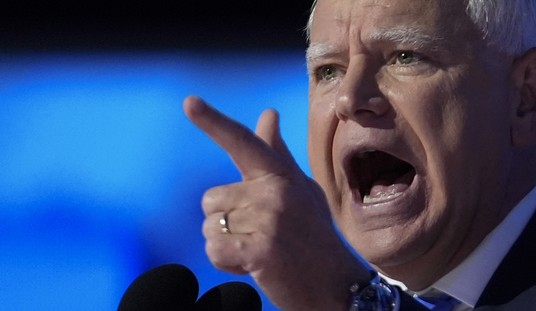The killing of a soldier and wounding of another at an Arkansas military recruiting center has caused the subject of “homegrown terrorists” to once again become a topic of discussion for radio and TV hosts, bloggers, and pundits. The use of the technically accurate “homegrown terrorist” term brings some serious risks with it. It summarizes the threat posed by conversions to radicalism here in the United States, thus creating a jihad on our own soil, but it ignores the fact that the seeds planted to begin that growth, and the soil and water to sustain it, come from overseas.
This isn’t a non-consequential, academic argument over semantics. If acts of radical Islamic terrorism can be described as “homegrown,” then those wishing to downplay the warfare aspect of the struggle can point to statistics, arguing that any large group will inevitably contain a few fanatics. For them, the use of the term “homegrown terrorist” frees the West of having to acknowledge the international links and infrastructure that enable such acts, and depicts acts like this shooting as the spontaneous outburst of a lone wolf rather than the result of a clandestine movement. It is a gift to the incubators of terrorism and extremism overseas, who can state that the presence of such forces on their land is no different than that on our own.
Let’s review the case of Abdulhakim Muhammad, the Muslim convert arrested for the Arkansas shooting. His path to jihad did not simply begin and end in the United States, but rather included a suspicious trip to Yemen after his conversion, where he was jailed for possessing a fake Somali passport. Robert Spencer of Jihad Watch says that a “well-placed source” has told him that Muhammad went to Yemen in an attempt to study with a radical cleric named Yahya Hajoori. The story of his initial conversion is not yet out, but when it is, it will almost certainly also find foreign roots, even if just ideologically.
This is a critical element often lost in the storyline of the attack. Muhammad didn’t just convert to Islam and engage in violence; he traveled outside of the country to Yemen, one of the areas where such views are proliferated and followers are mobilized into action. Absent foreign clerics, ideas, and governments who tolerate extremism, the roots of radical Islam would not have taken a strong enough hold in the U.S. to develop into a major threat. Instead, we’d face small units of fanatics with very limited means and a network that didn’t expand beyond their immediate extremist social circle — the picture that comes to mind when the “homegrown terrorist” term is used. This image equates the importance of the Arkansas shooting with the killing of an abortion doctor and a guard at the Holocaust Museum, equally revolting acts but ones that cannot be put in the same compartment and handled with the same methods.
The Arkansas shooting is the symptom of an overseas disease. Sometimes radical Islam can breed in Western democratic societies, but this almost exclusively happens among unassimilated communities and individuals, leaving them with the least immunity to such infections. The incident should not just be a call for greater vigilance at home, as such a call naturally results from any heinous crime, but also a greater vigilance in the overseas campaign in places like Yemen where the ideology is self-sustaining and is expanding into the West. For now, the extremist activity in the West is not self-sustaining and remains dependent upon foreign support for survival. Should the extremists ever reach a point of self-sufficiency in the U.S., the road to their defeat will still ultimately lead back to foreign countries.
The very nature of powerful terrorist and extremist networks requires some level of government responsibility, either through turning a blind eye or actively assisting them. Radical Islam needs educated leaders with media and organizational capabilities, and vast networks to provide weapons, recruits, materials for indoctrination, and money — networks that any host country would be able to identify and take action against.
Muhammad joined an ideology that emanates from overseas and is maintained through the extremist preaching and financing that exists in the Gulf countries. The Muslim Brotherhood likewise is financed by prominent, rich Gulf entities and its Hamas branch also takes advantage of Syrian and Iranian support. Jamaat ul-Fuqra receives its guidance from its spiritual leader, Sheikh Gilani, who currently resides in Pakistan. This same pattern will exist in any major radical Islamic group in the U.S., or anywhere for that matter.
The term “homegrown terrorist” will be used by those advocating a softer line in the global war on terror to argue for a law enforcement approach, viewing the problem as on par with glorified gangs and criminals. Unfortunately, there is no other satisfactory term, and so the debate about the implications of the term will continue. It is true that the problem is in America, but the solution is overseas.









Join the conversation as a VIP Member